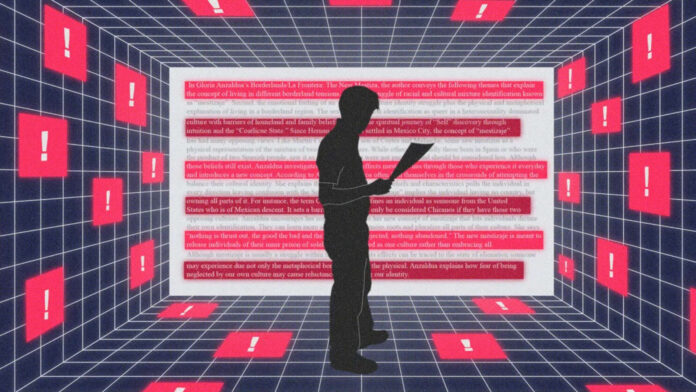Since the launch of ChatGPT, concerns have arisen about academic integrity, prompting students to use AI tools for writing assistance. In response, Turnitin rapidly developed an AI detection tool, leading to significant costs for educational institutions—over $6 million across California State University campuses alone. Despite widespread use, Turnitin’s technology often misidentifies student writing as AI-generated, creating tension between faculty and honest students. The tool’s imprecision has sparked debates about privacy and intellectual property, as Turnitin retains ownership rights to all student submissions.
Instructors are increasingly cautious, incorporating strict measures due to rising suspicions of dishonesty. Students express anxiety over potential accusations and report a culture of distrust in the educational environment. While many still use AI tools for legitimate assistance, the blurry line between acceptable support and academic dishonesty complicates matters. Critics argue that investing in fostering trust is a more effective approach to maintaining academic integrity than relying on detection technologies like Turnitin.
Source link
